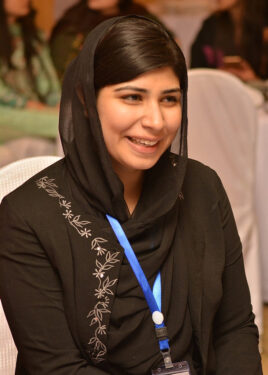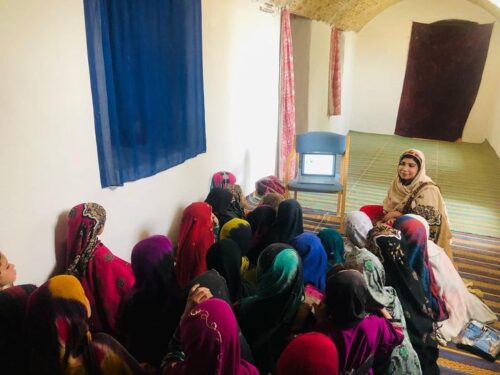
‘It’s My Safety That’s on the Line’
WINDSOR TERRACE — Pashtana Zalmai Khan Durrani had a choice to make: work to educate women inside Afghanistan despite the potential danger of doing so, or leave for a safer location. She chose to be courageous and not take the easy way out.
Durrani, who founded the nonprofit organization LEARN three years ago, is vowing to continue her mission despite the Taliban takeover of that nation — and that group’s notorious record of restricting the rights of women.
[Related: Only In Print: Women Face Uncertain Future Under Taliban Rule]
“In moments like these, you can either choose to side with the person who’s oppressing you and get your way out, or you can choose the side which is right. I would rather have a good night’s sleep,” she said.
Durrani is currently working from an undisclosed location. “It’s my safety that’s on the line,” she said.
Still, she is carrying on with her plans. “Right now, we are in the middle of educating around 100 healthcare workers that are focusing on maternal health care. Now the Taliban claim the war’s over, so maybe it’s time that the women in rural areas could access health care, especially maternal health care that they have been deprived of in the past,” she said.
LEARN is also focusing on training public school teachers. “The second thing that we are focusing on right now is public schools because we have two that we will open up soon. Of course, the universities have opened up, but in the schools that are supposed to open, we have a shortage of teachers, especially in the rural areas,” she said.
Taliban leaders, who assumed full control of the country on Aug. 31, have pledged to respect the rights of women and to permit females to be educated. But their track record says otherwise. The last time the Taliban was in power was 20 years ago, when they did not permit females to go to school.
On Sept. 6, the Taliban cracked down on a protest demonstration led by women in Kabul, a move that raised concerns about the future.
Women in Afghanistan, particularly young women who grew up free of Taliban oppression, are terrified of what is to come.
Durrani said the protests were a sign of something positive.
“They’re coming out and asking for what is their right. At least they know they’re educated and literate on their political and civil rights. That makes it a good sign for the future,” she said. “The world is watching them.”
For now, Durrani is taking a wait-and-see attitude. Does she believe the Taliban’s new claims of respect for women? “I will believe them in a sense, like when they opened universities. I want to welcome that. I just don’t want to be the person who keeps on criticizing and finding problems. But they still have a long way to earn our trust,” she said.

If the Taliban returns to its old way of doing things, Durrani is prepared. LEARN will work remotely, through the Internet, to offer educational opportunities.
LEARN also has a health care component and that will continue, Durrani said.
“For health care right now, we’re experimenting with tele-healthcare, and we are hoping to train around 100 maternal health care workers that are already enrolled in university,” she said.
Durrani, who is 23, offered a glimpse of what everyday life was like in her country before recent events.
Her days were filled with long walks in the country with her father, the two of them discussing “all sorts of things — politics, culture, music, poetry,” as well as her joy in reading a book or watching a movie on Netflix.
Her life became busy when she founded LEARN. She was inspired to start the organization by her family, which ran a school for girls. “There was a small committee of old women that my father formed. These old women would go to houses and tell families to send their daughters to school because the school is protected. It had security,” she said.
Durrani got the idea for LEARN after observing the struggles of one of her female cousins.
“She was learning from her own nephew’s books. And she cannot hold the pen, the way we are taught in prep or nursery. So I asked her, ‘Where did you learn?’ She said, “I learn from my nephew who comes every Thursday and Friday. He gives me his books.’ So for that whole year, I did all my research trying to find a platform that will teach her through a laptop or a computer or tablet,” Durrani recalled.
It was then, Durrani decided, that she wanted to perform that service for other women.
